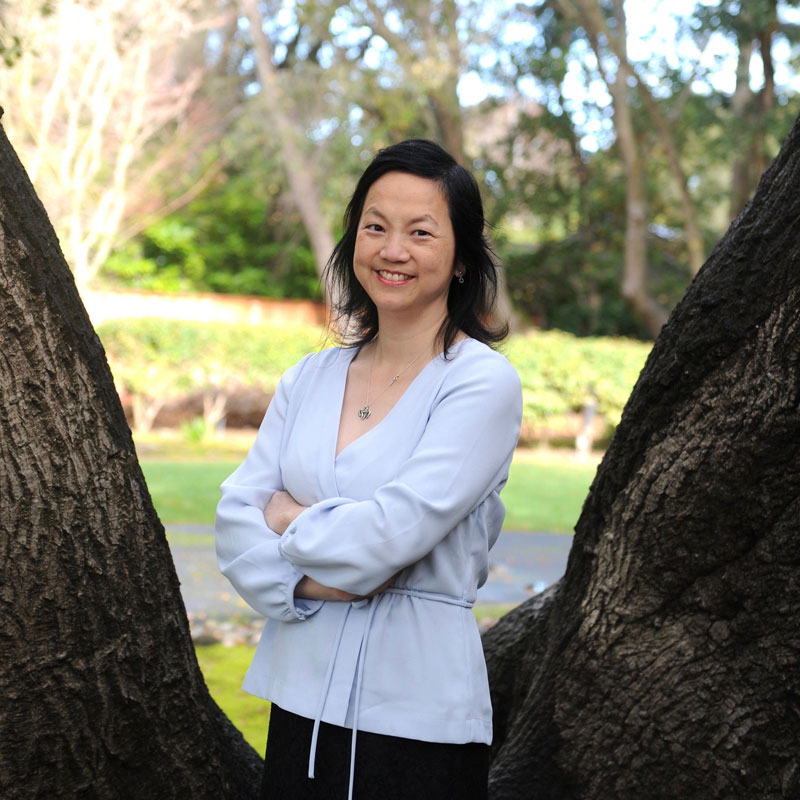
“Wherever there’s free toilet paper, there should be free menstrual hygiene products because it’s simply about equality,” says Dr. Sophia Yen. “Because if [cis-]men bled, it definitely would be free.”
Dr. Yen is a medical doctor, an entrepreneur, and a vocal advocate for women’s health and empowerment. In our latest Tiny Spark podcast, she makes her position clear. “We can do everything men do, bleeding,” she says. “But the question is why should we? And do we need to?”
Dr. Yen is the CEO and co-founder of Pandia Health, which bills itself as the first and only birth control delivery company founded and led by women and led by a doctor. It offers online medical consultations to dispense and refill birth control prescriptions.
Dr. Yen always knew she wanted to be a physician, but volunteering at Planned Parenthood when she was fifteen only fueled her passion for reproductive rights. “I ran a pregnancy test on a thirteen-year-old young woman, and it came back positive,” she remembers. “It was just so striking to me how our paths were going to be so different and divergent.”
Sign up for our free newsletters
Subscribe to NPQ's newsletters to have our top stories delivered directly to your inbox.
By signing up, you agree to our privacy policy and terms of use, and to receive messages from NPQ and our partners.
In a candid conversation, Dr. Yen shares her concerns about the cost of contraception, and the price that anti-abortion policies exact on those with uteri. She also explains why she was unable to provide abortion pills as part of her startup. “We had a most difficult time getting funding to begin with,” she says. “If we were to add abortion, no major investor would touch us.” In her more than twenty years in healthcare, Yen has seen this play out across the sector. “Nonprofits aren’t getting the funding and the support that they need because it’s seen as something shameful or horrific,” she says. “When it should just be seen as part of the continuum.”
Dr. Yen is also the co-founder of #FFFL, a campaign to get consumers to align their feminist values with the companies they choose to give money to. “If it’s a women’s product, women’s health, maybe choosing the one that’s female-founded, female-led will hopefully result in a better experience and at least level the playing ground,” she says, noting that female-founded, female-led companies only receive three percent of venture capital funding.
As a woman of color trying to raise funds for her for-profit venture, Yen has experienced this discrimination herself. “I think that there may be a subliminal bias against a woman, against a 40-year-old-something woman, against a mother, against a doctor,” she says. But Yen points out that these are also her strengths. “As a mother and as a physician, I can work 24/7. And as a physician, you learn to do whatever is necessary to get into medical school, whatever is necessary to make sure this patient is taken care of,” she says. “You want that same attitude when you are taking care of a company.”
Photo Credit: Provided by subject.
ADDITIONAL RESOURCES:
- Rebekah Bastian, “Trailblazers: Sophia Yen, MD, CEO and Co-Founder of Pandia Health,” Forbes, September 23, 2020.
- Adam Liptak, “Supreme Court to Hear Abortion Case Challenging Roe v. Wade,” The New York Times, May 17, 2021.
- Katie Fleischer, “Ms. Q&A: Dr. Sophia Yen on the Explosion of Telehealth and the Future of Birth Control,” Ms. Magazine, January 13, 2021.
- Anna North & Catherine Kim, “The ‘heartbeat’ bills that could ban almost all abortions, explained,” VOX, June 28, 2019.
- Dr. Yen on Twitter













